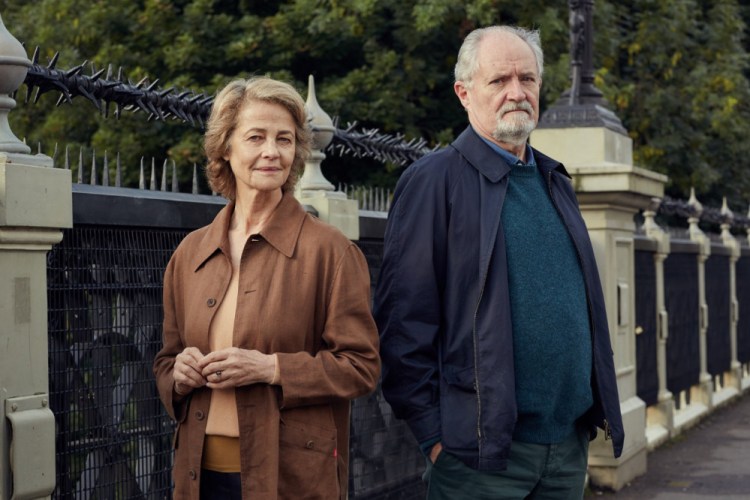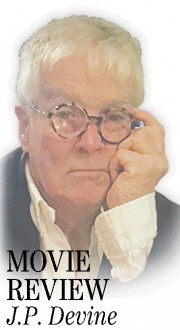“The richness of life lies in memories we have forgotten.” — Cesare Pavese
I’m always put off by movies narrated by the leading actor, even when it’s a film noir thriller with Dick Powell or Humphrey Bogart narrating, even when it’s a great British actor like Jim Broadbent.
In Indian director Ritesh Batra’s new film, “The Sense of an Ending,” Broadbent, long a legend in British films, plays a properly public school educated old, grouchy retiree who runs an antique camera shop in a side street. His narration goes on and on, poking in and out, while he sometimes appears as his aging self in scenes from the past. Blessedly, Broadbent does poking better than anyone.
We’re given much to chew on in this script, and I’m told that it’s important for all of us to have read the short novel by Julian Barnes, that won the prestigious Booker Man prize and got rave reviews. But how many moviegoers really want to research every movie before they see it? How many fans really read “Gone With the Wind?”
The premise posited here is that the major moments we remember in our lives are often not what really happened at all, or at least not in the intensity we remember.
In Tony’s (Broadbent) case, it starts with a letter that may be a clue, we don’t know, because we only get a fleeting glimpse. It’s a letter from a barrister, who tells Tony that the mother of his young love has left him an “item” in her will. It’s this item that keeps boiling throughout the film.
We meet a group of really good, interesting actors here doing great work in their individual moments: “Downton Abbey’s” Michelle Dockery plays Tony’s pregnant daughter, who belongs to a group of pregnant Lesbian women, where Papa Tony joins in her Lamaze class. Dockery, boosted by her “Downton” role, is enjoying a fun career.
The fabled Charlotte Rampling is here, doing her iconic “Debbie Downer” schtick. The younger Veronica (Freya Mavor) is a happier Veronica, much cheerier and lovelier to look at.
It’s clear that something terrible befell our Veronica in years past, something very, very terrible.
We float through 108 minutes and a shard of flashbacks, wondering why adult Veronica won’t give Tony that “item” left to him by her mother. Is it about the suicide of young Tony’s friend Adrian? Does it involve Mother? Why should Tony care? And what about Veronica’s brother? Is this Batra employing Alfred Hitchcock’s famous “McGuffin” device? No, probably not.
It’s in one of those flashbacks, that we meet Veronica’s mother Sarah, played to a sparkling tee by a coquettish, lovely and interesting Emily Mortimer, who brightens the action when young Tony spends a weekend at Veronica’s country home.
I would compel you to pay attention to Mortimer’s role here, and that mysterious hand wave she gives at the end of the weekend. Is that a clue?
“Ending” is one of those very British films full of long conversations that you must sit up and pay attention to. Words slip by and then they’re gone. But it is well directed and acted and beautifully filmed by Christopher Ross, with music by Max Richter.
“Ending” is not an exciting film, but at least it borders on intriguing, and in today’s offerings, that’s something. I know I’m leaving you confused, and I suggest you all go to see it, and then stop me in the street and tell me why I’m still confused.
J.P. Devine is a former stage and screen actor.
Copy the Story LinkSend questions/comments to the editors.




Success. Please wait for the page to reload. If the page does not reload within 5 seconds, please refresh the page.
Enter your email and password to access comments.
Hi, to comment on stories you must . This profile is in addition to your subscription and website login.
Already have a commenting profile? .
Invalid username/password.
Please check your email to confirm and complete your registration.
Only subscribers are eligible to post comments. Please subscribe or login first for digital access. Here’s why.
Use the form below to reset your password. When you've submitted your account email, we will send an email with a reset code.